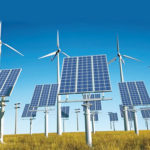This is the view of the Department of Environmental Health Sciences, University of Ibadan and the Environmental Health Scientists Association, Nigeria (EHSAN) in their report submitted to the International Federation for Environmental Health (IFEH) on the 2017 World Environmental Health Day programme, recently made available to Ecoscope.
The report identified the following as issues exacerbating air pollution problem in Nigeria. They are: poor awareness and low knowledge level on the sources, causes, effects, management and control of air pollution (indoor and outdoor); inadequate training of younger generation and upcoming scientists in the area of environmental pollution management especially air pollution control; poor attitude towards the environment, and over-dependence on exotic guideline limits vis USEPA, WHO without having similar tailored guidelines in Nigeria.
Other issues include: lack of air monitoring stations in the major urban cities of the country compared to what is obtainable in other major countries of the world; continued inter-institutional and agency rivalry and unhealthy competitions leading to disharmony and lack of synergy among the various stakeholders to combat air pollution.
Generator use was a major problem contributing to both the urban and rural air pollution.
In the report, National President of EHSAN, Dr Godson Ana along with representatives of Environmental Health Officers Registration Council of Nigeria (EHORECON), National Environmental Standards and Regulations Enforcement Agency (NESREA), and Environmental Health Officers Association of Nigeria (EHOAN), recommended the following among others to mitigate air pollution in Nigeria.
They include: the need to increase the awareness creation and education on the sources, causes, effects, management and control of air pollution (indoor and outdoor); the need to intensify capacity building and training development of the younger generations and upcoming scientists in environmental pollution management;and the need for improved synergy and collaboration amongst relevant regulatory agencies and professionals bodies responsible for control and management of air pollution in Nigeria.
WATCH TOP VIDEOS FROM NIGERIAN TRIBUNE TV
- Let’s Talk About SELF-AWARENESS
- Is Your Confidence Mistaken for Pride? Let’s talk about it
- Is Etiquette About Perfection…Or Just Not Being Rude?
- Top Psychologist Reveal 3 Signs You’re Struggling With Imposter Syndrome
- Do You Pick Up Work-Related Calls at Midnight or Never? Let’s Talk About Boundaries








